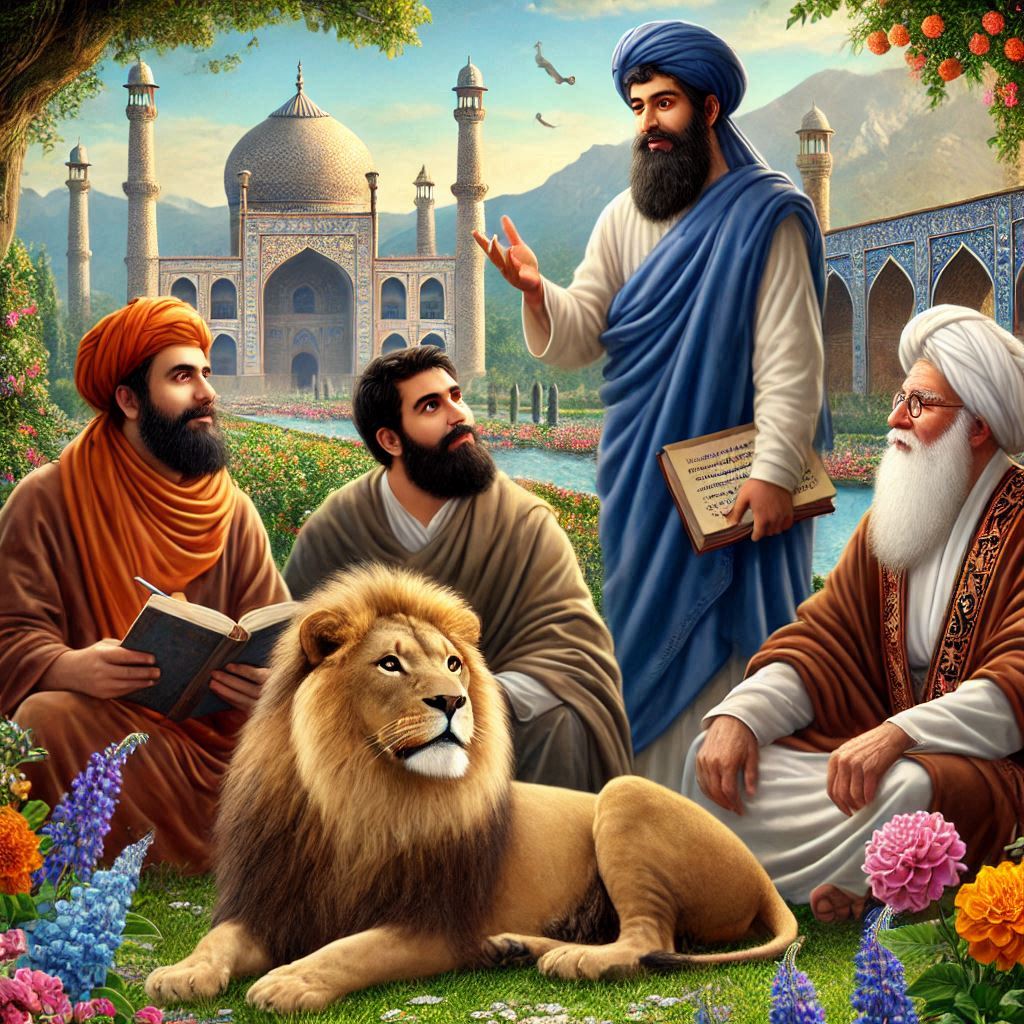There is a story of old, once told by a people who hearkened to wisdom. As the members of that community do not now listen to meanings, it really matters little whether they are told the story or not, or have preserved it or not.
But to proceed: the story concerns four men, who lived in the same neighborhood, and had all studied the theoretical and practical arts to such an extent, and under the greatest masters of knowledge, that everyone was convinced that they had reached the apogee of knowledge.
It so happened that the four came to the conclusion that they should travel and exercise their knowledge, for has it not been said that ‘He who has knowledge and does not use it, it is as if he were a fool?’
In short, the friends became wayfarers, seeking opportunities to act upon their knowledge. It also happens to be true, as has been known both before and since, that three of the scholars were deeply versed in arts and sciences, in theory and practice, while the fourth, while less celebrated in customary terms, was well endowed with understanding.
After some days, during which they came to know one another more and more, and when they had had many debates and discussions, the three well-matched scholars felt that their companion was nothing like as well endowed with learning as they, and they tried to make him leave their party to return home. When he refused to do so, they said, ‘It is typical of an insensitive one like you, bereft of appreciation of the great capacities which we others have, to persist in representing yourself as our equal.’ But they allowed him to accompany them, although they excluded him thenceforth from their important deliberations.
Now it so happened that one day while the four were walking along, they came upon a heap of bones and other remains of an animal, by the roadside.
‘Ah,’ said the First Scholar, ‘I can perceive through my knowledge that this is the carcass of a lion.’
‘And I,’ said the Second Scholar, ‘have the knowledge to reconstitute its body in a viable form.’
‘As for me’ said the Third Scholar, I have the capacity to reanimate things, and I can bestow life upon it.’
They decided to apply their respective powers in these ways.
The Fourth Scholar, however, caught the others by the sleeve, and said:
I must inform you that although you object to my skills and theoretical abilities, I am yet a man of understanding. This is indeed, as you have perceived, the remains of a lion. Bring it back to life and it will destroy us all if it can!’
But the three other scholars were far too interested in exercising their theories and getting on with their practices. Within a few minutes, the mound of skin and bone was reconstituted into a living, breathing, clearly very dangerous lion.
While the practitioners of learning were busy with their operations, the Fourth Scholar climbed a tall tree. As he watched, the lion fell on his companions and devoured them. Then it roared away into the wilderness: and the only survivor of the expedition came down from his tree, and made his way back to his country.

